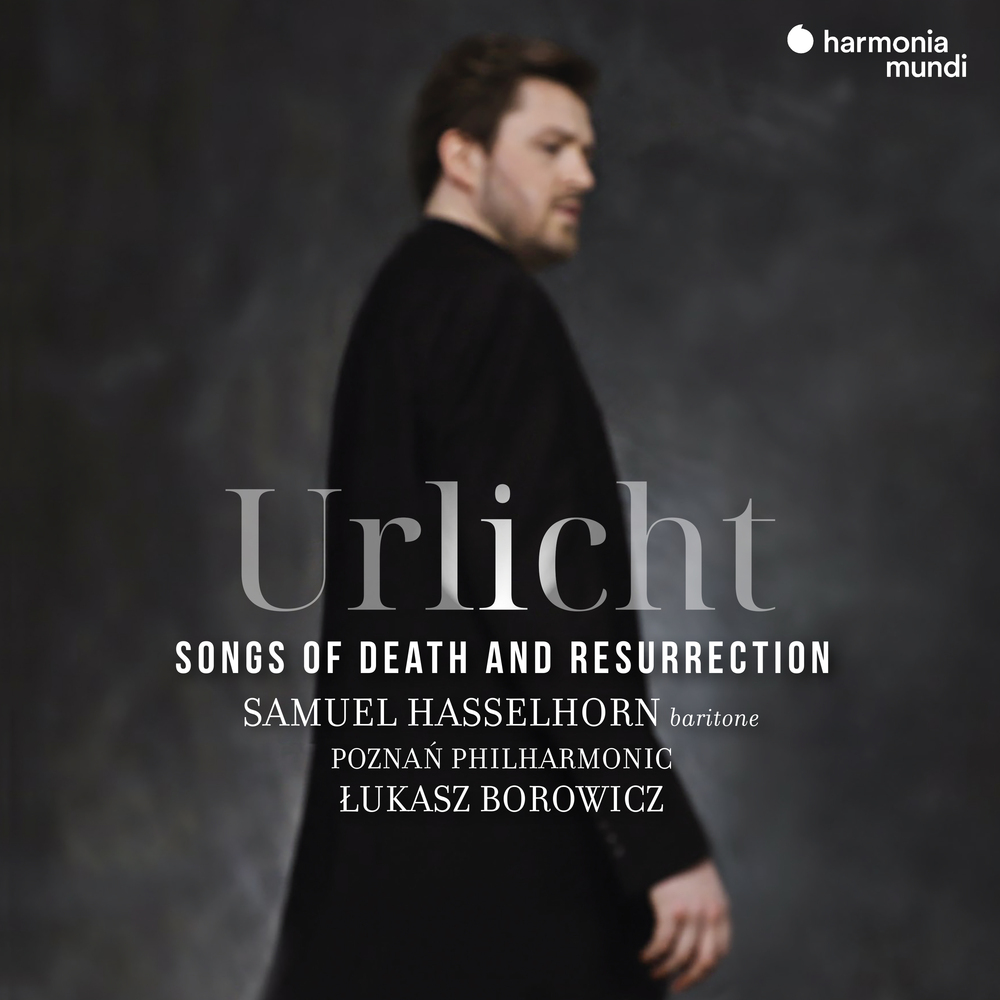Urlicht – Songs of Death and Resurrection is the latest album recorded by the Poznań Philharmonic Orchestra under Łukasz Borowicz with the baritone Samuel Hasselhorn. The recording also features the boys’ voices of The Poznań Nightingales, the Boys and Men’s Choir of the Poznań Philharmonic.
Although the world premiere is scheduled for 14 June 2024, first reviews are already beginning to appear. Below you will find an account published by Tony Way on the Australian Limelight Music, Arts & Culture platform, where the record was made EDITOR’S CHOICE.
Containing songs and arias by Gustav Mahler, Erich Wolfgang Korngold, Alexander von Zemlinsky, Hans Pfitzner, Engelbert Humperdinck, Alban Berg and Walter Braunfels, the album is published by the prestigious Harmonia Mundi publishers.

,,A dazzling display of fine, young artistry in captivating repertory. Here is a remarkable disc, whose marriage of artist and repertoire must have been made in some mythical, musical heaven.
As many German baritones have done before him, 33-year-old Samuel Hasselhorn is journeying from the world of the classic Lied exemplified by Schubert and Schumann to the more exotic and variegated pastures of post-Romanticism and early modernism both in song and opera.
This recording catches him doing so when his instrument is still at its freshest, youthful peak, full of subtle timbral variations and sensitive, intelligent delivery of text.
Take for example, the two songs he has chosen from Mahler’s Das Knaben Wunderhorn. Hasselhorn invests that sardonic denunciation of militarism, Revelge with increasing drama, freighting the onomatopoeic refrain with skilful, ironic colour. (The version sung by tenor Gösta Winberg in Riccardo Chailly’s otherwise well-regarded recording of the cycle sounds positively one-dimensional in comparison.)
By contrast, Urlicht (perhaps better known in its revised version for alto incorporated into the Resurrection Symphony) is sung with a disarming, simple honesty that stirs the soul.
That soul-stirring quality is also evident in the two other Mahler songs, this time from the Rückert Lieder. Hasselhorn musters impressive technique to navigate the long phrases and low tessitura of Um Mitternacht, his voice valiantly standing out against the stark majesty of the orchestration for low winds and brass. As the artist tenderly bids farewell to the world in Ich bin der Welt abhanden gekommen, there is again a profound sincerity devoid of all artifice that cannot fail to move the listener.
Subtitled “Songs of Death and Resurrection” this disc has plenty of tragedy, ranging from an extract from Humperdinck’s Königskinder where the death of royal children is soothed by an ethereal children’s chorus provided by the Nightingales Boys’ Choir of the Poznań Philharmonic. Raw sexual violence is vividly realised in the murderous duo between Marie and Wozzeck in Berg’s opera, with the help of soprano Julia Grüter.
Hans Pfitzner’s Herr Oluf sees one the Lied’s archetypal harbingers of death and destruction, the Erlking, wreak havoc on a wedding day. (No Lorelei in this program.) Walter Braunfel’s Auf ein Soldatengrab contemplates a soldier’s grave in a highly romanticised mode.
Elements of nostalgia and yearning are beautifully brought to life in the famous Pierrot’s Tanzlied from Korngold’s opera Die tote Stadt and in Zemlinsky’s lusciously orchestrated song Die alte Garten.
Apart from Hasselhorn’s superb singing with its prodigious range of light and shade, the other standout of this disc is the exuberant playing of the Poznań Philharmonic Orchestra under the empathetic direction of Łukasz Borowicz, well captured in every detail by the Harmonia Mundi engineers.
Returning to Chailly, for those old enough to remember being captivated by the vocal makeweights of his Mahler symphony cycle (such as the Zemlinsky Maeterlink-Lieder sung by Jard van Nes and Diepenbrock’s Im großen Schweigen sung by Håkan Hagegård) this disc is definitely for you. If you’re younger, you too will still be inspired by the multi-faceted mastery of one of today’s most promising singers in this ravishing program where resurrection most certainly outweighs death.”

